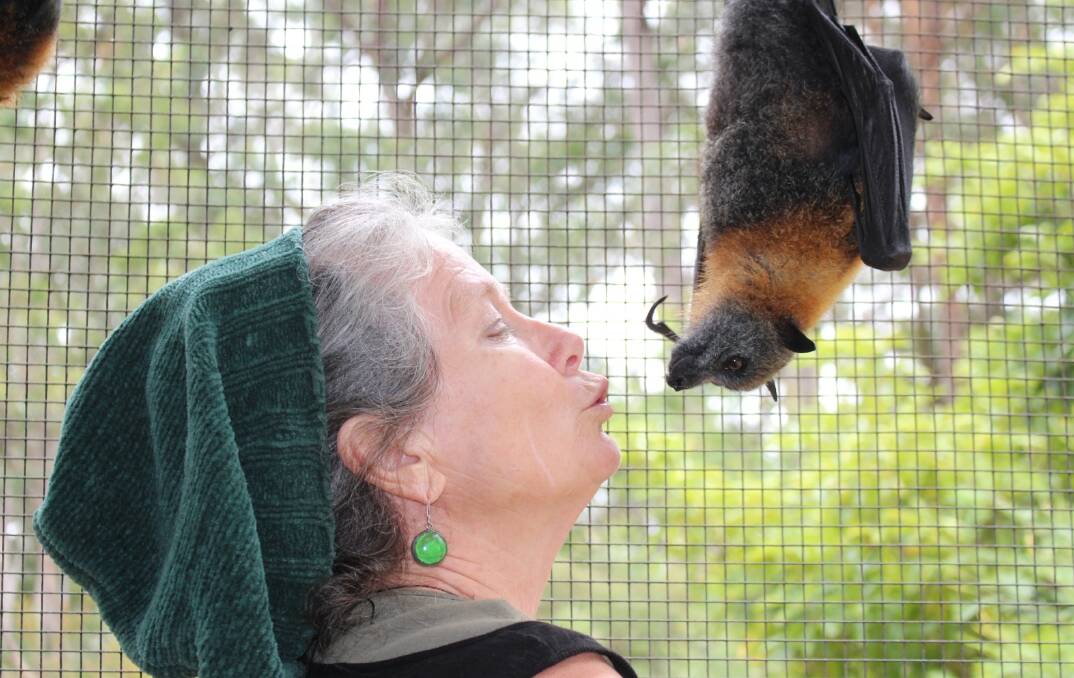
Batemans Bay is going batty and residents are calling for the relocation of the 120,000-strong colony of grey-headed flying foxes that have settled in their town, but Alexandra Seddon of Potoroo Palace Wildlife Sanctuary says this will be of no use.
Subscribe now for unlimited access.
$0/
(min cost $0)
or signup to continue reading
Around 15 years ago, Ms Seddon bought a property in Bald Hills in an attempt to be close to and protect the Pambula flying fox camp that covers about 14 hectares.
The area can quickly fill up with the small mammals as they fly up and down the east coast in search of food, mainly flowering eucalypts and rain forest fruits.
Throughout most of March and until around mid April around 100,000 flying foxes – about a quarter of the world’s flying fox population – were living on and adjacent to Ms Seddon’s property.
While they have moved on for now, Ms Seddon said the only humane way to get rid of a flying fox colony is to simply wait for the animals to leave of their own accord.
“Asking me if I would support humans relocating flying foxes is asking me if I condone torture,” Ms Seddon said.
“Because our relocation methods really are torturing the poor things. We are saying they can’t be here but there is no where for them to go.”
Ms Seddon said the main ways the bats are relocated was through scaring them with smoke, noise, bright lights or spraying them with water.
“The problem is, once they are relocated, there is no way on knowing whether they will come back or not. They could be scaring and torturing the creatures and it may not work.
“It’s best to just leave them as the problems they cause for people are generally short-lived as they move on in every one to two months as they search of new sources of nectar and fruit.”
Aside from the large Batemans Bay colony, flying foxes are also very common in Pambula where there is a camp flying foxes have been frequenting for hundreds of years and more recently they have started roosting in Bega.
While some people claim the flying foxes are hard to live with, Ms Seddon said the animals are highly intelligent and essential to the Australian eco-system.
“It would cost billions of dollars to do the work they do with regards to seed dispersal and pollination of eucalyptus and rain forest species.”
Having loved grey-headed flying foxes for many years, Ms Seddon said she hopes people don’t take the bat problem into their own hands.
“It’s rare for them to stay in one place for a very long time, they are beautiful, intelligent creatures and it seems like they are better at living with humans than humans are living with them.”

